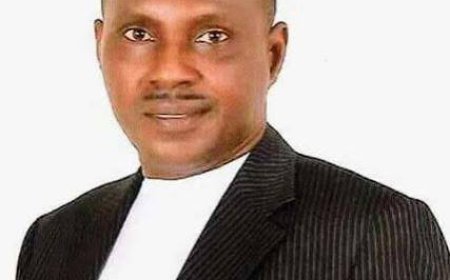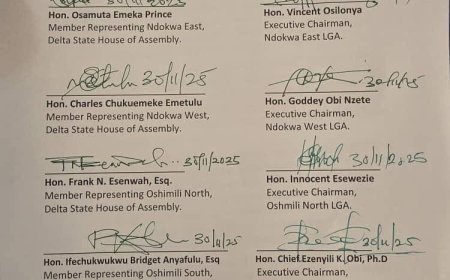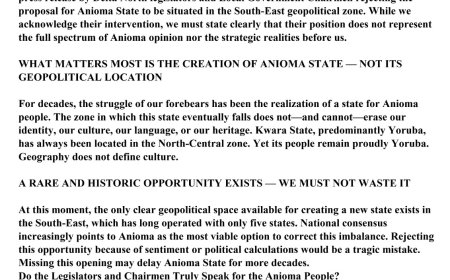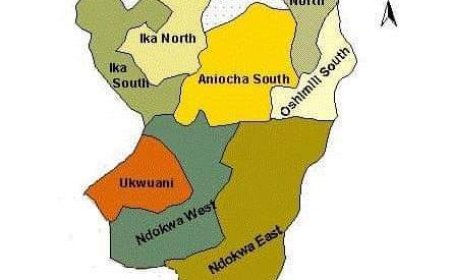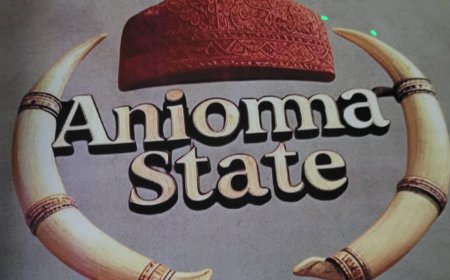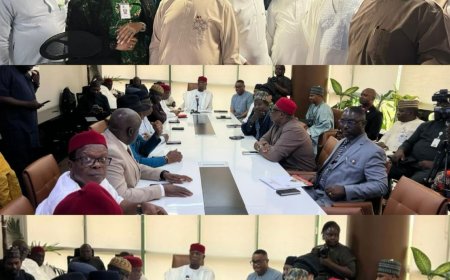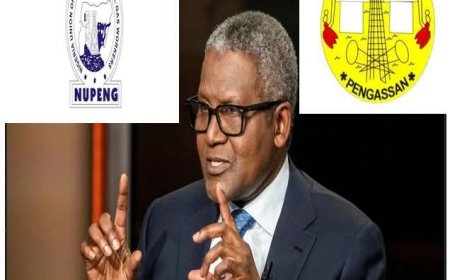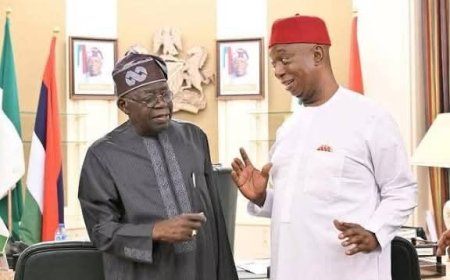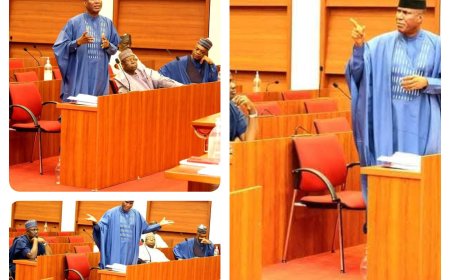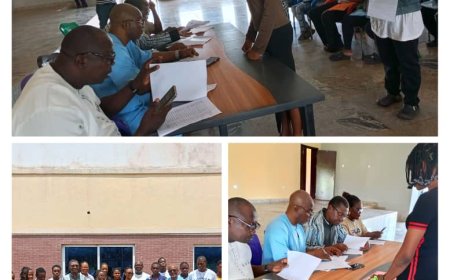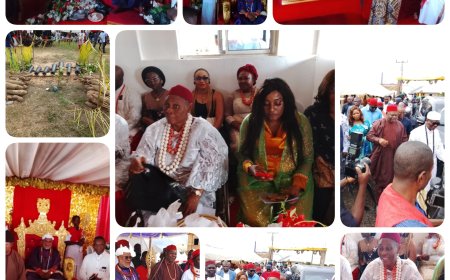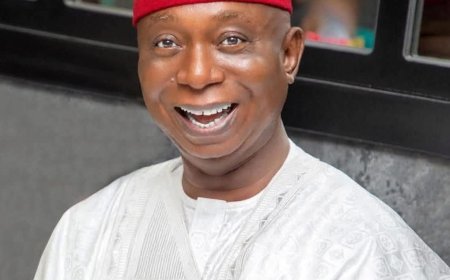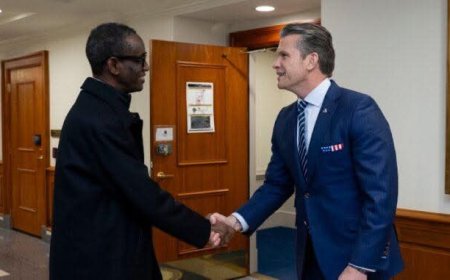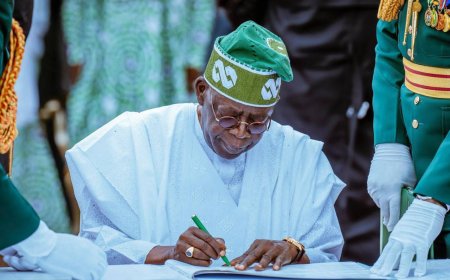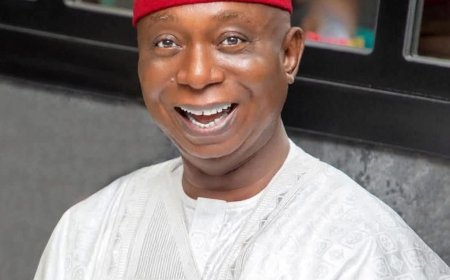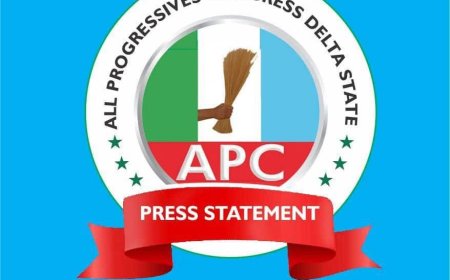A STAKEHOLDER’S VOICE IN DEFENCE OF ANIOMA STATE
By Professor Julie Nwabogo E. Umukoro, Department of Theatre and Film Studies, University of Port Harcourt; The Kpakpando Furuni Eze of Ase Kingdom. 1st November 2025.

I am Professor Julie Nwabogo E. Umukoro, daughter of Augustine Opute Agha of Ase Kingdom — a proud descendant of the royal households of Ozue and Ararie, and by ancestral lineage, one of the Umu-Ibedeni, the children of Ibedeni in Ase.
As one of the foremost female professors of Ase and a reputable member of the Ase Council of Chiefs, I carry both the heritage of my fathers and the burden of my voice. I know my roots, and I know the pulse of my people. My words, therefore, are not those of a mere observer, but of one whose life, lineage, and service are firmly woven into the fabric of Ase and the broader Anioma identity.
As a woman, I understand the pangs of birthing a child; as a mother of heritage, I understand the anguish of birthing a people without recognition. I am therefore compelled — by conscience, by ancestry, and by destiny — to speak. Silence, in moments such as this, would amount to complicity.
Whether Anioma State is created in my lifetime or in generations to come, I desire that history should record that I spoke when truth called for courage. My weapon is not the sword, but the word — and I must use it. Let posterity, when it calls the roll of those who stood for Anioma’s destiny, find my name among those who refused to be silent.
A Rejoinder to “Futility and Folly of Creating Anioma State: A One-Man Hunting Expedition” by Dr. Emeke Onyejebose
The recent essay by Dr. Emeke Onyejebose, titled “Futility and Folly of Creating Anioma State,” is a familiar refrain — one that seeks to cast noble aspirations in the garb of mischief, and to reduce a people’s legitimate quest for self-definition to the whim of a single individual. It is, with respect, a thesis built on fallacy, fear, and historical amnesia.
The clamour for Anioma State did not begin with one man, and it certainly will not end with him. It is an enduring aspiration borne out of the historical marginalization of a distinct people who have contributed immensely to the political, cultural, and intellectual life of Nigeria, yet remain administratively constrained within an arrangement that does not fully reflect their identity or potential.
To label this collective yearning as “illogical,” “deceptive,” or “tribal” is to deny the very principles upon which federations thrive — equity, representation, and self-determination. The Midwest Region that Dr. Onyejebose reveres was itself a product of such a legitimate aspiration for self-governance — a peaceful demand by people who felt unseen within larger political blocs. The call for Anioma State walks in that same noble tradition.
Let us, therefore, address — point by point — the misconceptions Dr. Onyejebose parades as arguments.
1. Unity is not uniformity.
To advocate for Anioma State is not to divide, but to redefine belonging within a federal structure. The Midwest vision that Sir Dennis Osadebay championed was one of justice and inclusion — values that Anioma State would further, not betray.
2. Asaba’s status as Delta capital does not negate Anioma identity.
The location of a state capital is administrative, not existential. That Asaba hosts the Delta State Government does not translate to equitable development or adequate representation for Delta North. The Anioma agitation seeks precisely that balance.
3. Economic sustainability is a function of vision, not geography.
Many Nigerian states began without industrial or maritime bases. Development is driven by leadership, resourcefulness, and policy — not by inherited infrastructure. Anioma’s people have demonstrated enterprise and capacity across Nigeria and the diaspora; given structure and autonomy, they can sustain a thriving state.
4. Being landlocked is not a curse.
Switzerland, Rwanda, and several Nigerian states flourish without seaports. What sustains a people is internal coherence, strategic planning, and productive governance — all of which Anioma possesses in abundance.
5. “Anioma” is not a borrowed name, but a banner of unity.
While the term originated as an acronym — ANIO (Aniocha, Ndokwa, Ika, Oshimili) — its evolution into “Anioma” symbolizes a conscious embrace of shared destiny. Language evolves; identity solidifies through shared experience. To weaponize etymology against unity is both pedantic and unwise.
6. Cultural plurality is not cultural confusion.
Delta North’s mosaic of origins — Igalla, Benin, Yoruba, Igbo — is a testament to its richness, not a disqualification for statehood. Anioma is not defined by the dominance of one tongue, but by the harmony of many. That is its strength.
7. Self-determination is not secession.
To seek an Anioma State within the Nigerian federation is not to cede to the Southeast, nor to undermine Delta or Edo. It is to ask, within the legitimate framework of nationhood, for administrative balance and fair representation.
8. No aspiration worth pursuing has ever been unanimous.
Every transformative idea — from the creation of the Midwest to the birth of Bayelsa — began with the voice of a few who saw farther. Leadership often begins as a “one-man expedition,” until others find their courage.
9. The argument of cost cannot silence the argument of justice.
If administrative prudence were the only measure, Nigeria would never have expanded from three regions to thirty-six states. Governance is not sustained by fear of expense but by commitment to equity.
10. To invoke Osadebay against Anioma is to misunderstand his legacy.
Sir Dennis Osadebay stood for fairness, identity, and creative autonomy. He would not have condemned a people’s quest for recognition — he would have refined it. To claim his name in defence of stagnation is to betray his ideals.
In Conclusion
The agitation for Anioma State is not a rebellion against the Midwest ideal, but its logical fulfillment. It is not a one-man hunting expedition, but a generational journey towards self-realization.
Those who dismiss it as folly misunderstand the heartbeat of a people who, for decades, have remained loyal contributors to Nigeria’s unity and progress, yet seek the dignity of self-administration within that same unity.
Let the record, therefore, show that we — the sons and daughters of Ase, Aniocha, Ndokwa, Ika, Oshimili, and beyond — are not beggars for identity. We are claimants of history, heirs of vision, and custodians of a legacy that must not fade.
Whether now or in time to come, Anioma shall rise — not as a division, but as a definition.
What's Your Reaction?







